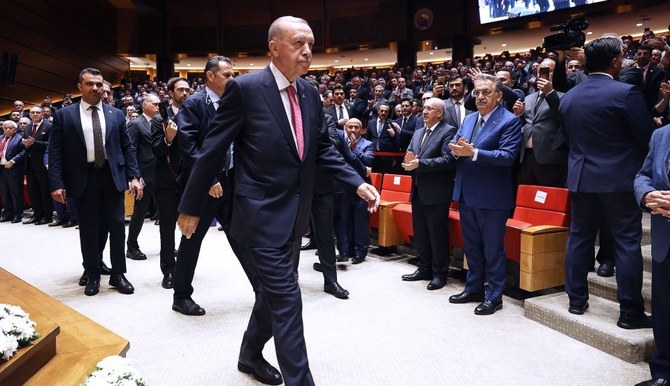
Sedat Peker, a well-known ringleader of the Turkish underworld, last week unleashed a campaign to blacken the names of his estranged accomplices. He also identified the political figures who have protected them. His disclosures covered corrupt practices in Turkey, irregularities, absence of the rule of law and futile rivalries between the security apparatus and the judiciary.
Peker conducts his campaign by recording videos and distributing them via social media. His followers are in the millions. Most of what he has revealed involved episodes that had already been leaked in the past, but they are voiced this time by an actor who comes from the circles where such unlawful acts have been committed and they are being exposed by him in a more organized manner. Therefore, meticulous analysis may detect nuggets of truth in this mountain of accusations.
Apparently, Peker fell victim to a rivalry between two competing powerhouses within Turkey’s ruling Justice and Development Party (AKP). One of them is led by President Recep Tayyip Erdogan’s son-in-law Berat Albayrak. He recently asked Erdogan to be excused from his post as treasury minister “in order to devote more time to his family.” He then disappeared from the scene and his whereabouts are yet to be disclosed. Peker refrained from directly attacking Albayrak. Instead, he attacked Mehmet Agar, the former interior minister, who he accused of doing Albayrak’s dirty work. The other powerhouse is Interior Minister Suleyman Soylu, who is regarded as a possible replacement for Erdogan.
Before this split within the party structure, Peker used to act as the main volunteer to promote the AKP. When a group of academics issued a statement criticizing the government’s policy on Kurds, Peker defiantly retorted: “We will spill in torrents the blood of these academics and will take a shower with their blood.” However, in a video issued in Dubai, the same Peker has now stepped back and said: “If any of these academics tells me that they were not trying to protect the (Kurdish) terrorist organization, I promise that I will solemnly announce I made a stupid mistake and apologize for it.”
Peker must have bet on the wrong horse. When he felt that he might be arrested, he first fled to Montenegro, then to North Macedonia and then Morocco. He now lives in the UAE, a country with which Turkey has no extradition agreement.
Corruption was one of the vices the party promised to eradicate in Turkey, but it has now become even more widespread.
Yasar Yakis
When the AKP was established in mid-2001, corruption was one of the vices it promised to eradicate, but it has now become even more widespread. Peker’s disclosures have opened a debate in Turkey on whether this could be an opportunity to bring an end to the devastating corruption that ruins all structures of the state.
The ways of getting rid of this calamity through democratic means are not yet entirely blocked. The multiparty democracy practiced in Turkey for more than 75 years must have given some experience to the electorate. It has proved it can replace a political party that is in power no matter how strong it may be. In the June 2015 general election, the AKP was reduced to a minority in parliament, so the electorate had accomplished its share of the duty. However, the opposition parties could not agree on the formation of a coalition government to oust the AKP. Erdogan skillfully used this outcome, called for a snap election just a few months later, and subsequently stayed in power.
The first pertinent remark on Peker’s disclosures came from veteran political figure Cemil Cicek, a former minister of justice and speaker of parliament. When a few high-level members of the ruling party dared raise their voice against the widespread corruption, he said: “If one thousandth of what Peker says turns out to be true, this is already a disaster for the country. Public prosecutors who hear or read such scandalous news do not need an instigation to take action. They are expected to prosecute these allegations on their own initiative without being asked or instructed to do so.”
Cicek is at present a member of the Supreme Consultative Board. In other words, he is one of the three closest advisers to Erdogan, so the president’s attitude on this comment will be interesting to know.
It remains to be seen whether the airing of this dirty linen will meaningfully change the opinion of the electorate. A Turkish proverb says: “Anyone who steals a minaret must know of a place to hide it.”
Yasar Yakis is a former foreign minister of Turkey and founding member of the ruling AK Party. Twitter: @yakis_yasar
Disclaimer: Views expressed by writers in this section are their own and do not necessarily reflect Arab News" point-of-view












